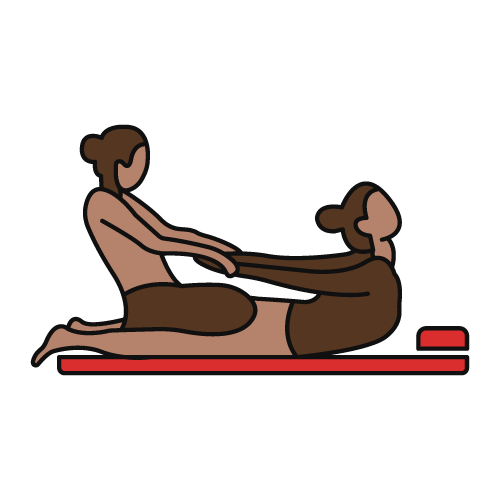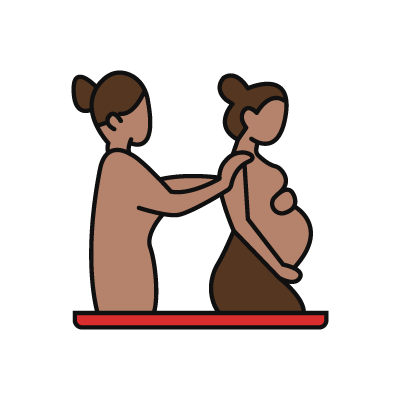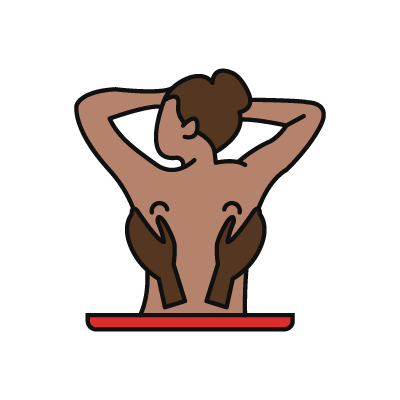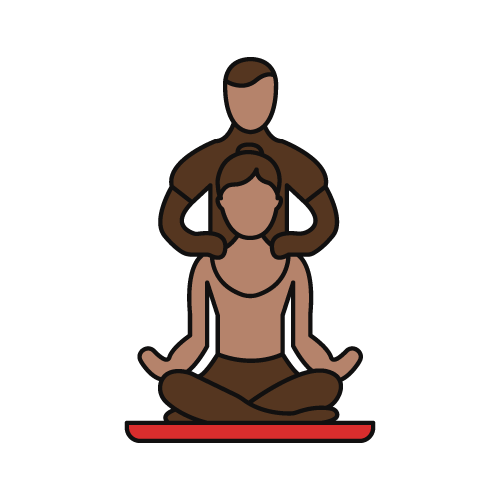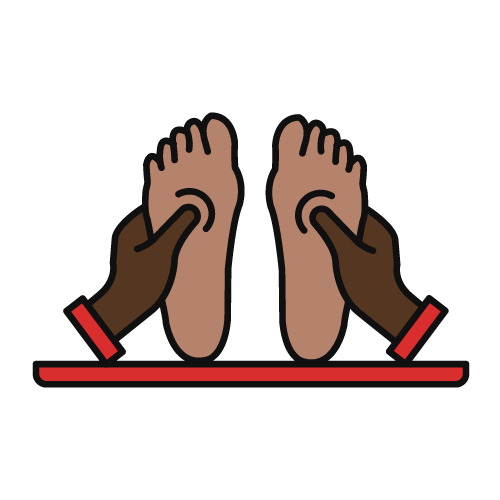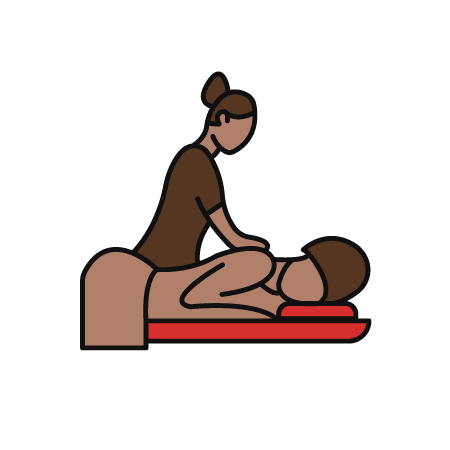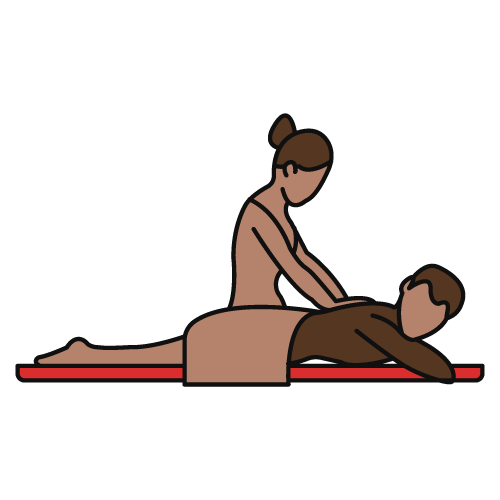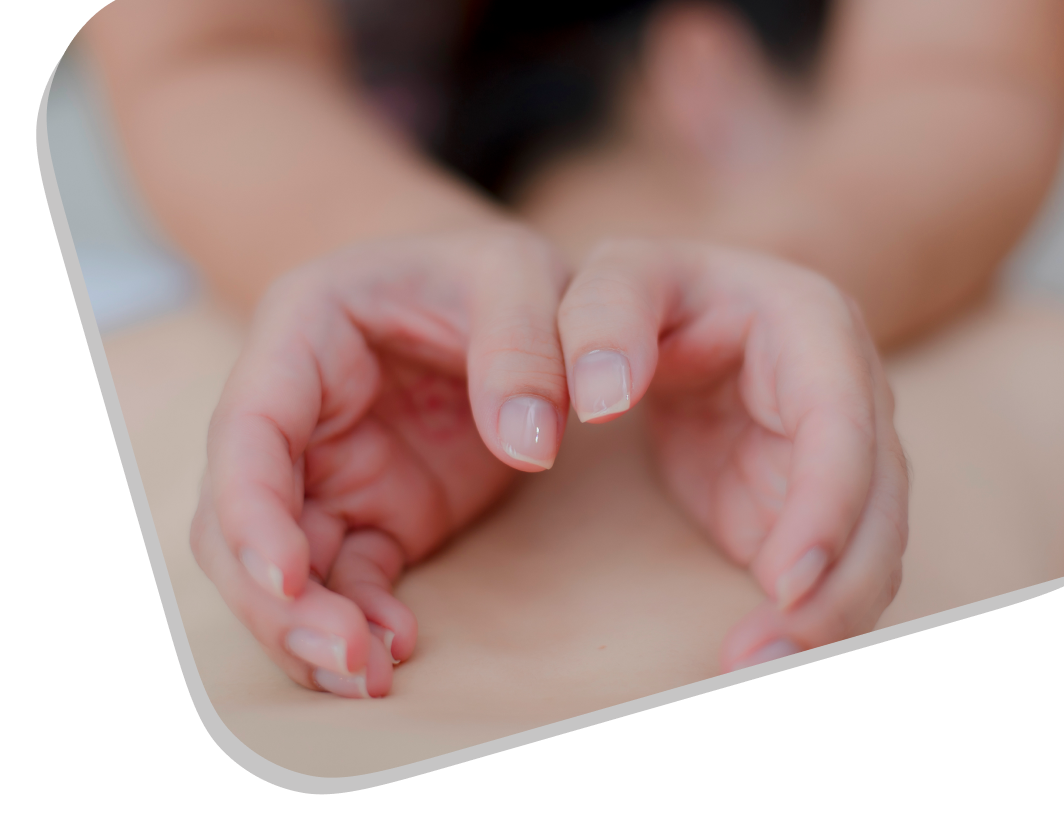
Let Our Thai Yoga Massage Heal You From the Inside Out.
Unleash stubborn tension and restore your body’s alignment and freedom of movement. Starting from only £75.
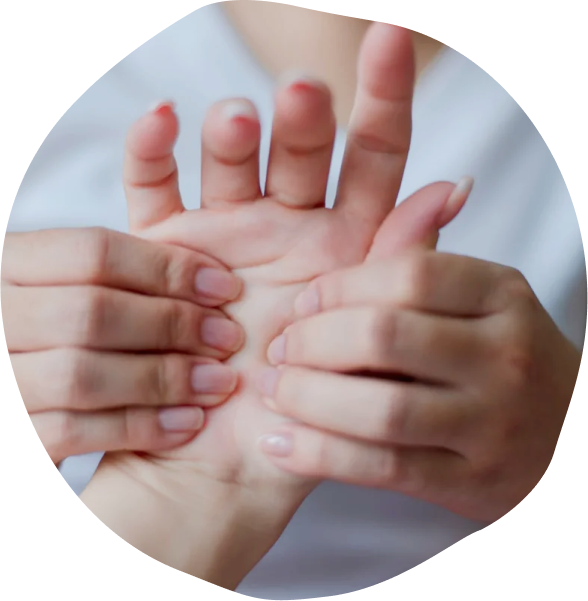
The Benefits of Thai Yoga Massage
Client Favourite Massages
Stretch and align muscles and joints with our targeted yoga massages.
FAQs
More info on Thai Yoga Massage
Thai massage is a holistic style of bodywork based on an ancient Thai therapeutic practice developed over 2,500 years. It involves applying pressure and stretches along the body’s energy lines, also known as “sen lines,” along with assisted yoga postures and deep breathing techniques. The massage therapist manipulates the client’s body with their hands, elbows, knees, and feet to facilitate the passage of energy, fostering relaxation, flexibility, and overall wellbeing. The massage is typically performed on a mat or a firm mattress on the floor, with the client remaining fully clothed throughout.
Thai yoga massage is a traditional healing procedure with numerous mental and physical benefits. This type of massage is usually performed on a floor mat with the client wearing loose-fitting clothing. The Thai massage therapist uses techniques such as stretching, compression, and acupressure to release tension and relax muscles. Thai yoga massage can also help improve flexibility and energy levels and reduce stress.
Thai Yoga massage is an ancient custom with numerous mental and physical benefits. However, some people must avoid this type of massage. Thai Yoga massage should be avoided if you have any of the following conditions:
- Pregnancy
- High blood pressure
- Heart problems
- Epilepsy
If you have other health concerns, please consult your doctor before scheduling a Thai Yoga massage.
Thai massage can be intense and potentially painful, especially for first-timers or those unaccustomed to deep-tissue pressure. Still, discomfort can be minimised through communication with the therapist and adjustments to pressure and technique, ensuring a comfortable experience tailored to your pain tolerance and physical condition.
You don’t need to be highly flexible to have a Thai massage. The massage therapist will guide your body through various stretches and poses to improve flexibility and release tension. They will also alter the pressure and intensity of the massage to meet your specific demands and level of comfort. However, it is always better to consult a doctor for medical ailments or concerns.
- Advance Notice: Please cancel your appointment at least 24 hours in advance if necessary.
- Late Cancellation Fee: You will be charged a £65 cancellation fee if you cancel your appointment with less than 24 hours’ notice.
- No-Show Policy: A no-show will be charged the full service fee.
This policy is designed to minimise the impact of cancellations on our business and other clients, while acknowledging that life happens. We appreciate your understanding and your contribution to our continued success.
Some benefits of Thai Massage include:
- Stress and anxiety relief: Techniques soothe the nervous system, ease muscle tension, and increase blood circulation, reducing stress and anxiety.
- Muscle pain and stiffness reduction: Stretching and pressure techniques release muscle tension and knots, alleviating discomfort.
- Improved mobility and flexibility: Focusing on stretching, twisting, and compressing the body increases flexibility and joint mobility.
- Boosted energy and immune function: Increased blood circulation, a healthy immune response, and enhanced energy levels.
- Enhanced overall well-being: Promotes relaxation, reduces tension, and balances the body’s energy.
Results may vary depending on the individual and the techniques used.
It is important not to eat a heavy meal, drink alcohol, or take a hot bath after a Thai massage. Consuming a large meal can cause indigestion, and alcohol can dehydrate you. Taking a hot bath can relax your muscles too much, reducing the massage’s effectiveness.
We’ve compiled a list of ten (9) things you shouldn’t do after a massage.
- Taking a Hot Shower
- Eating a Large Meal
- Drinking Coffe
- Drinking Alcohol
- Engaging in Strenuous Exercise
- Stressing Out.
- Not Drinking Enough Water
- Take a Shower Right Away
For general wellness and stress relief, consider getting a Thai Massage at least once a month. This can be adjusted based on your body’s needs, lifestyle, goals, and specific health conditions. If you’re frequently in pain or stressed, you might start with more sessions (e.g., biweekly or monthly) until relief, then reduce to every few weeks or monthly for maintenance. Ultimately, consult a massage therapist for a personalised plan.
While Thai Massage can benefit most people, certain health conditions may prevent or limit a person from receiving it, such as:
1. Recent surgeries or injuries
2. Pregnancy
3. High blood pressure or heart disease
4. Some types of cancer
5. Osteoporosis or brittle bones
6. Contagious skin conditions
7. Deep vein thrombosis (DVT)
8. Diabetes
9. Herniated disks or spinal fusion
10. Epilepsy or seizures
11. Infectious diseases or conditions
It is essential to consult with a healthcare professional and the massage therapist to determine if Thai Massage is safe and advisable for individuals with specific health conditions.
No, it’s not advisable to proceed without precautions. It is recommended to contact your healthcare professional first if you have any health issues before obtaining any form of massage (including Thai massage). Certain conditions, such as high blood pressure or diabetes, may require adjustments to the technique. The therapist may also ask you to complete a health intake form to assess your risks.
The answer is it depends! A tip is a nice way to show appreciation if you had a great experience and felt like your therapist helped you relax and feel better. However, if you had a bad experience or felt your therapist did not do a good job, you are not required to tip. It is ultimately your decision whether or not to tip your massage therapist.
